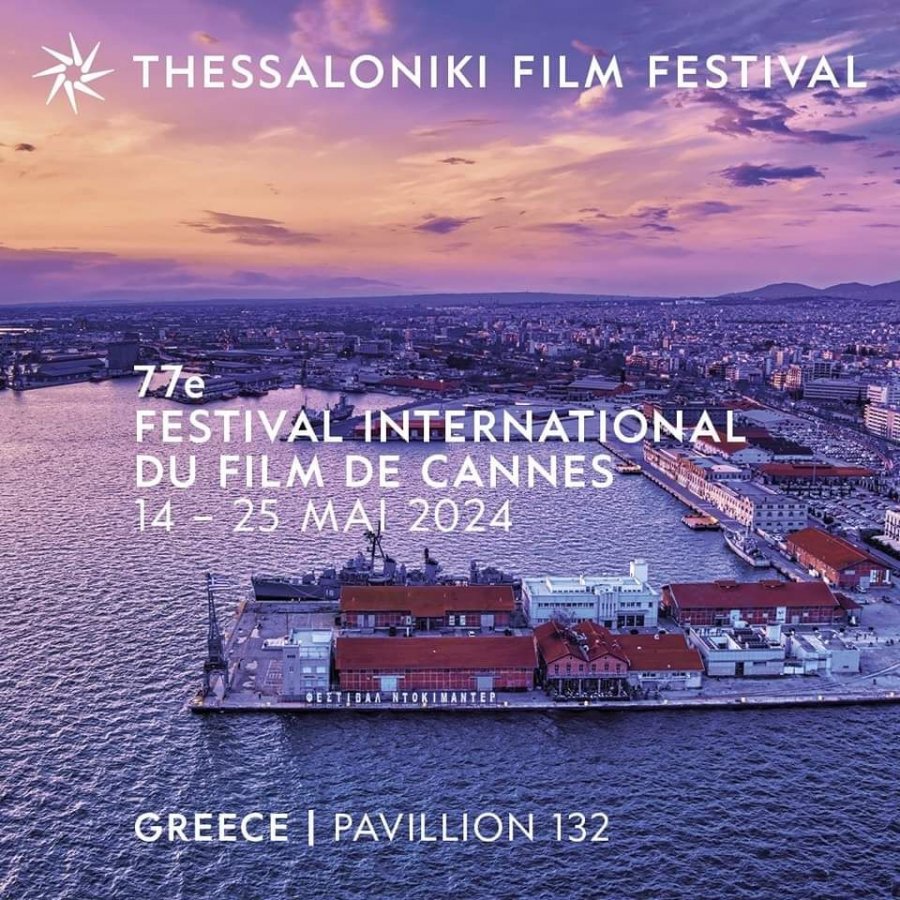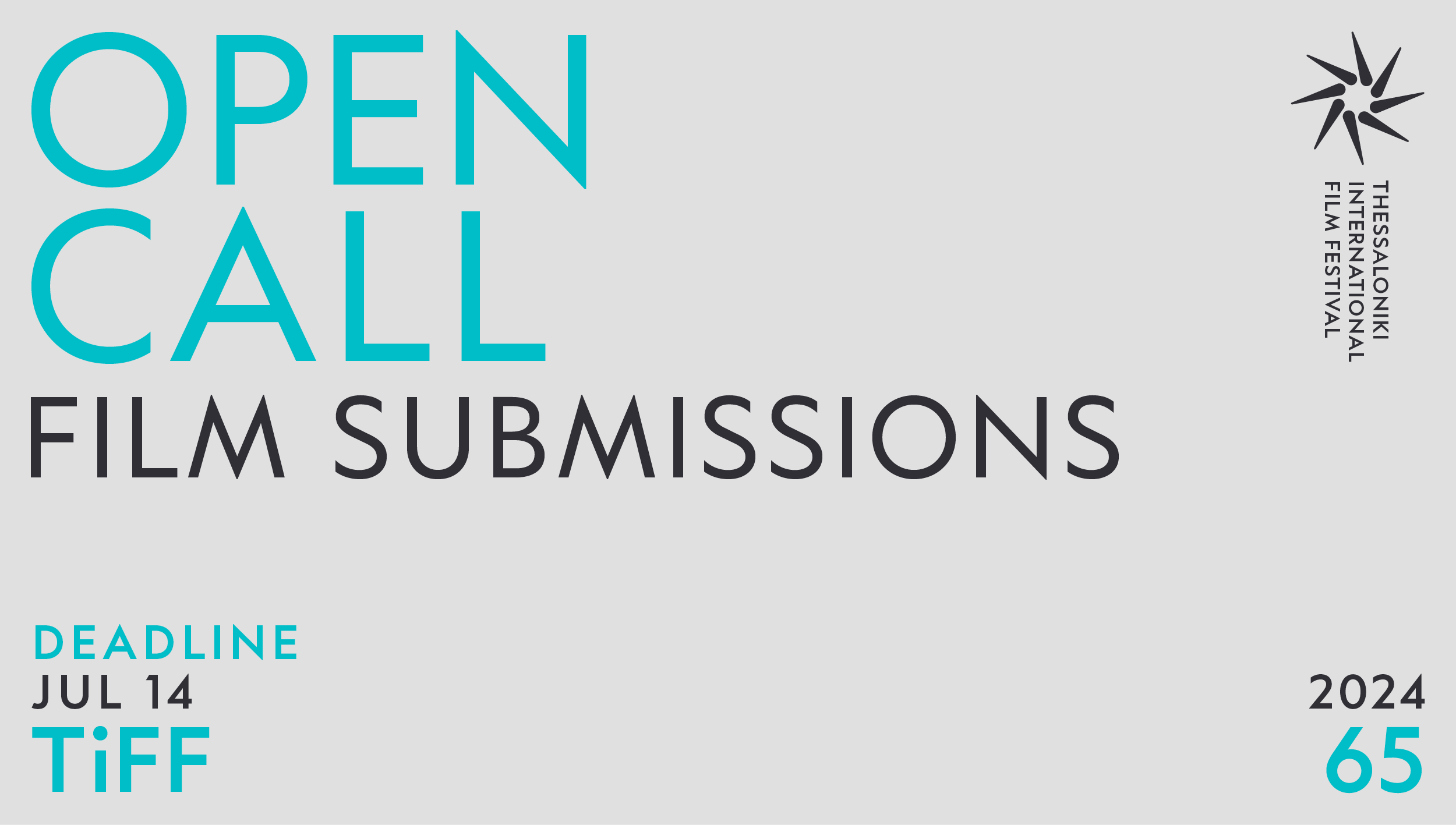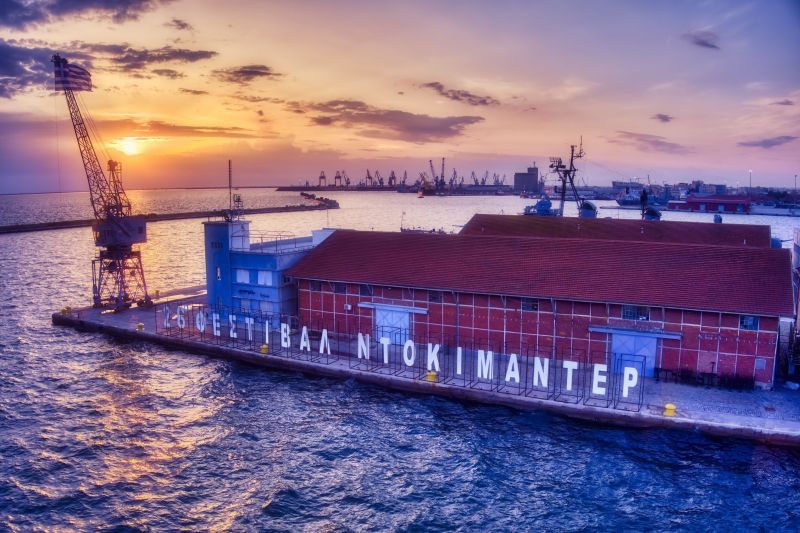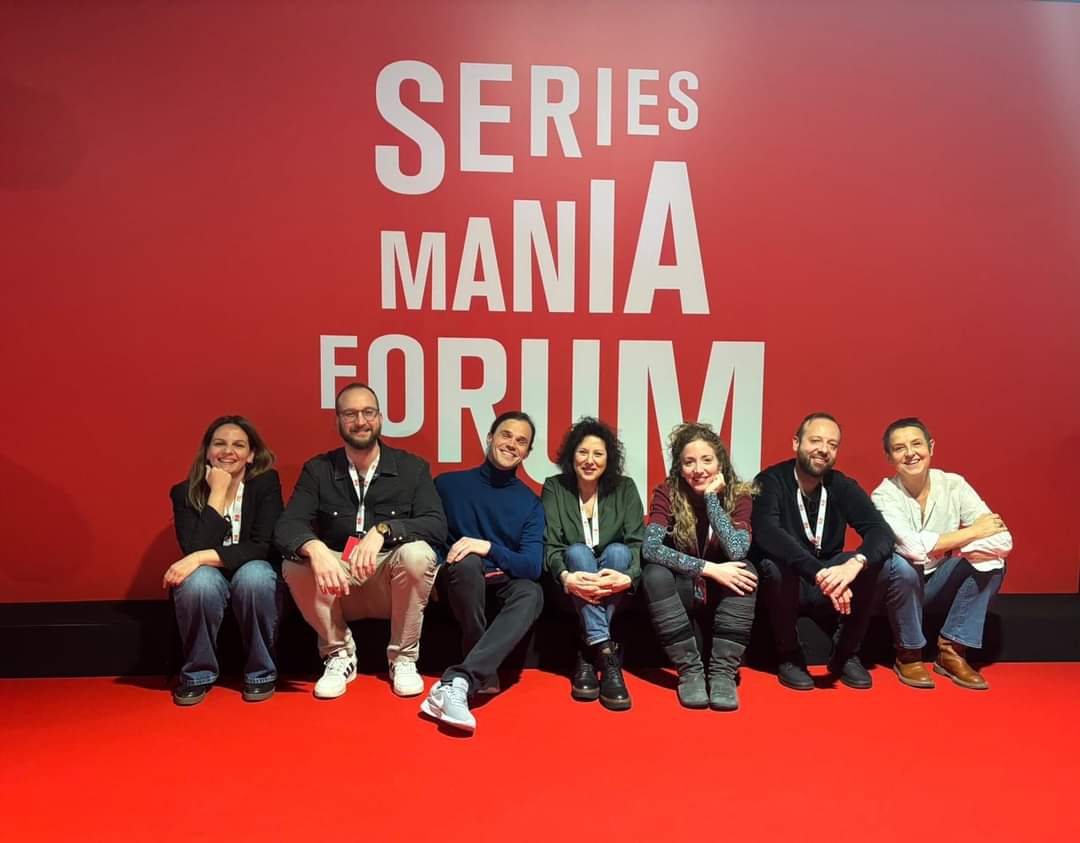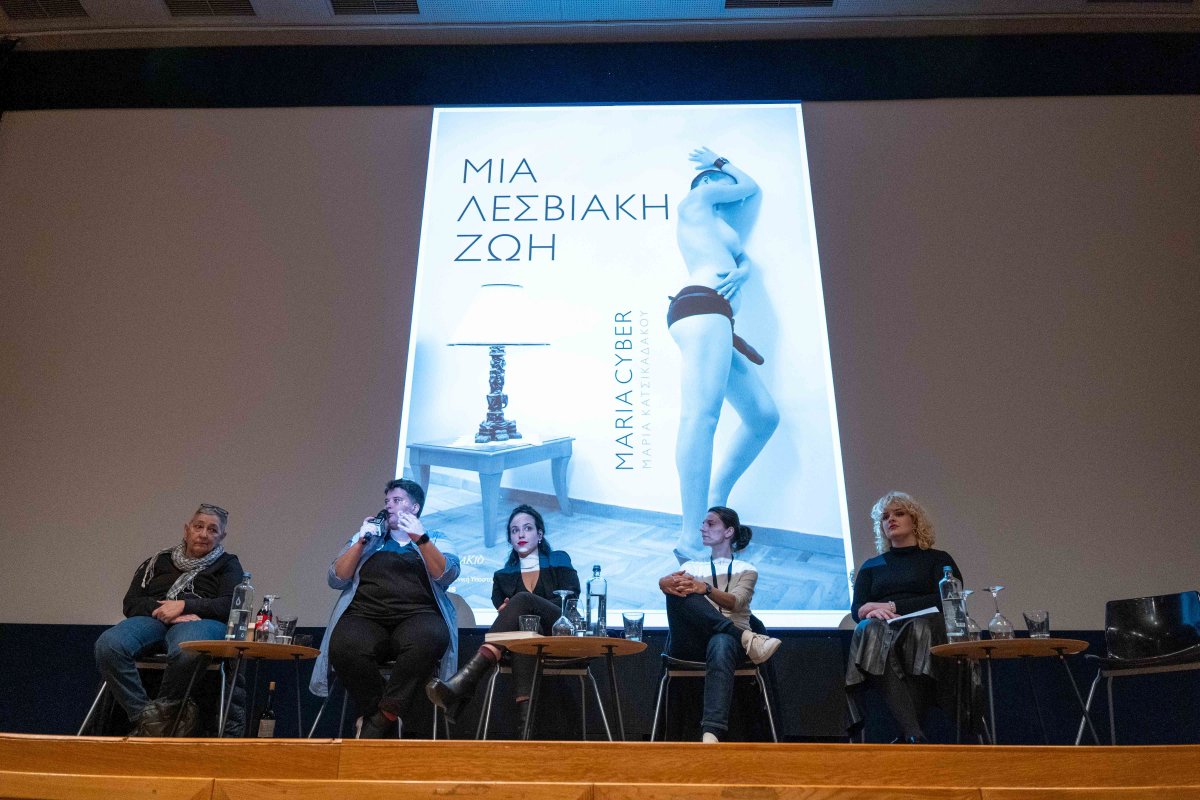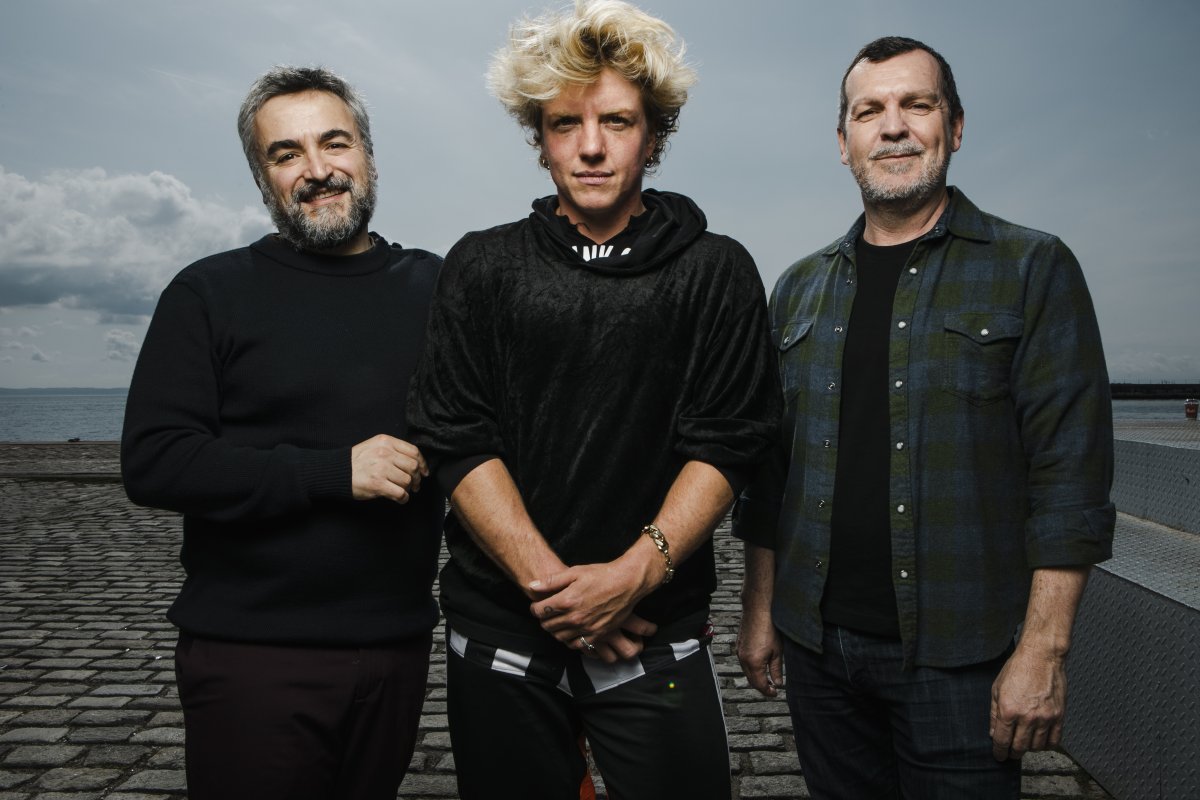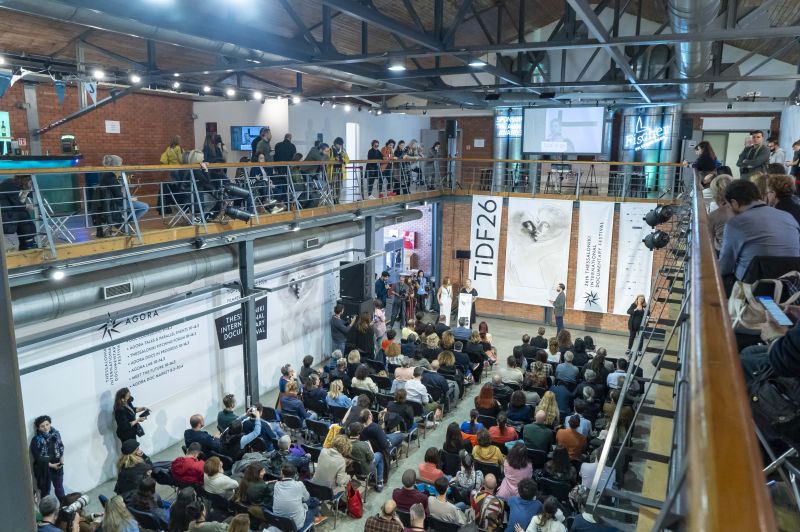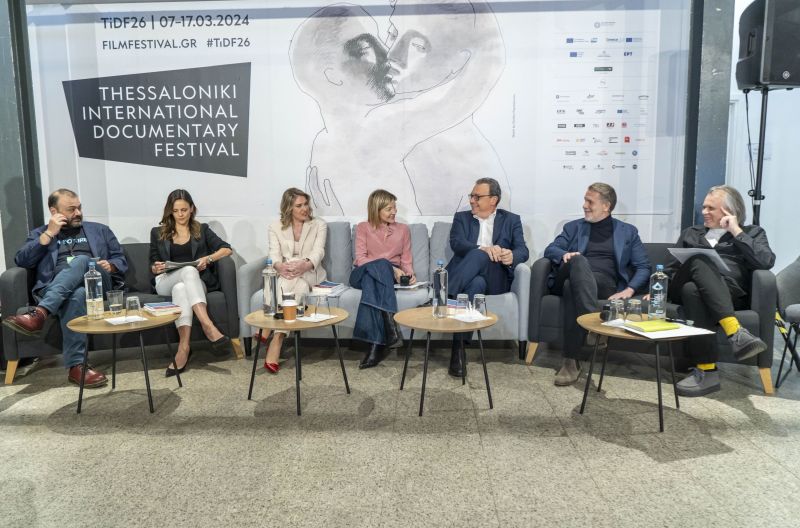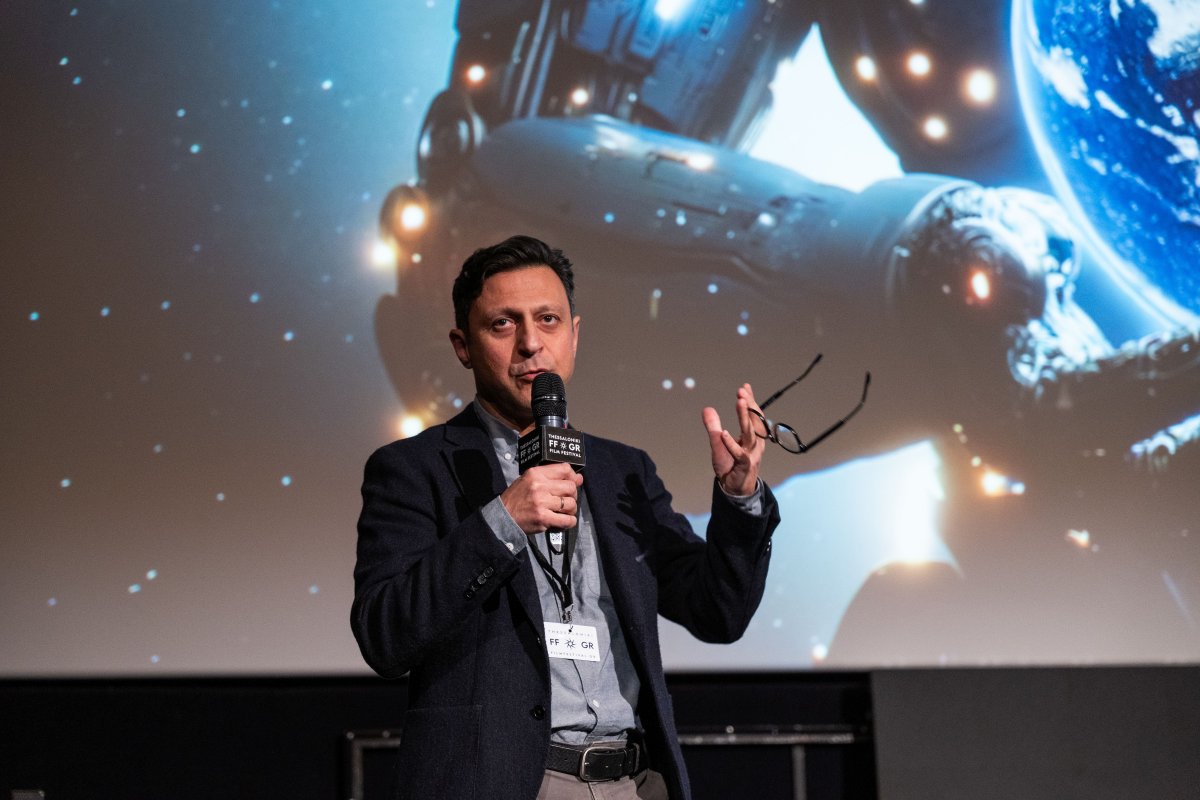PRESS CONFERENCE
WANDERING SOUL / TITOS, A POET IN PRECARIOUS BALANCE/ GREGORY MARKOPOULOS AND TEMENOS: RADIATING WITH ONE'S OWN LIGHT / ELEUSIS - ONE CITY, TWO FACES/ MIKIS THEODORAKIS- THE COMPOSER OF POETS AND VISIONS FROM 1950 UP TO THE PRESENT
The cycle of Press Conferences for Greek directors in the International Programme of the 12th Thessaloniki Documentary Festival - Images of the 21st Century continued on Monday, March 15, 2010 with the directors Angeliki Aristomenopoulou (Wandering Soul), Nikos Chrisikakis (Titos, A Poet In Precarious Balance), Evdoxia Mpra (Gregory Markopoulos And Temenos: Radiating With One's Own Light), Mihalis Panayiotopoulos (Eleusis - One City, Two Faces) and Yannis Katomeris (Mikis Theodorakis- The Composer Of Poets And Visions From 1950 Up To The Present).
Evdoxia Mpra, in her documentary Gregory Markopoulos And Temenos: Radiating With One's Own Light follows the traces of the life and work of the director Gregory Markopoulos, as well as the spiritual legacy of Temenos, an outdoor screening in the Peloponnese. As she said, the greatest challenge and the greatest difficulty she faced in making the film was to secure the rights to Gregory Markopoulos’ films and photographs. She was helped in this by the director Robert Beevers, who continues screening Markopoulos’ work in Greece. . “Robert told me that Gregory didn’t want such a documentary to be made, because he generally avoided labels and didn’t put ‘chapters’ in the book of his life” she said and added: “Robert Beevers’ wish is that slowly the work of Gregory Markopoulos will become known in Greece and abroad. But I think that Robert would not have allowed me to make this documentary if he didn’t really believe it was right”.
The Mihalis Panayiotopoulos spoke. His film Eleusis - One City, Two Faces he records the attempt to rebuild the area which was suffered great environmental destruction in the ‘80s. “Eleusis is like a miniature of Greece. Whatever good is there, such as archeological sites, exists throughout the country. We are rich, we just have to realize it. Behind Eleusis’ ruins and sewage is a significant wealth and the young people living in the area has risen up to demand the self evident”, the director noted. A brave effort began in Eleusis in 2005, to make the area livable through the European programme “LIFE – Environment: The Bay of Eleusis in 2020”. Spearheading the initiative are members of the network “Mediterranean SOS”. Their representative, Lucia Kalaitzi, who was present at the press conference said: “Young people are informed now, the know and they demand. One of their demands was the creation of the Center for Environmental Education and Culture, something that was accomplished in December 2008. We, for our part, continue our struggle to inform and sensitize people”.
Then Nikos Chrisikakis, director of Titos, A Poet In Precarious Balance spoke. He mentioned the difficulties he had making the film on Titos Patrikios. He needed to find a balance in his protagonist’s many-sided personality, who combines the attributes of a poet, writer, translator, ideologue, dissident, fighter and cosmopolitan flaneur. “This is essentially Tito’s autobiographical narrative. For us, the question was which of the many things this multifaceted man has done should be included in a documentary”. The director spent 18 months recording an absolutely personal rendering of accounts of the 83 year old Titos Patrikios, through his stories and thoughts, sketching out a critical view of the age in which he lived. “Anyone who knows Titos knows that he has a personal, grounded view of life, and that he has faced the many challenges such a life contains. This lack of balance has informed his narrative, as can be seen in the documentary”, the director concluded.
Another difficult task was undertaken by Yannis Katomeris, who in his film Mikis Theodorakis- The Composer Of Poets And Visions From 1950 Up To The Present presents the odyssey of the life of this great Greek composer. “What I had thought would be most difficult, approaching a myth, was in the end the easiest thing”, he admitted. “When I met Mikis Theodorakis I discovered that he is an approachable man, an eternal adolescent, who has the ability to understand people from the first moment he meets them”, he added. Based on a rich narrative that took place over eight months of almost daily “confessions” in front of the camera, Mikis Theodorakis takes the viewer back through time, through his passion, his struggle, visions, music and culture. “The biggest reward for our work was Miki Theodorakis’ reaction to the film, that he told us he felt touched when he saw the final result”, Mr. Katomeris said. The documentary includes some dramatizations of events in the life of the great Greek composer. Among the actors is Yannis Bezos. He and the other actors worked in the documentary for free. “These are actors who have worked with Mikis Theodorakis and love him as well as his work. That was out goal, to approach people who could express this narrative in a convincing way”, the director noted.
Finally Angeliki Aristomenopoulou spoke about her documentary Wandering Soul, which is dedicated to Yiannis Angelakas, a musician who has shaped the alternative music scene in our country. “The film records moments from the every day life of Angelakas as a person, not just as a musician. What spurred me to make a documentary on his life was the fact that in spite of becoming a rock star he remained true to his values, which he has kept until today”, she noted. Among other things, the documentary includes some references to the December 2008 incidents, through which the particular influence of Yiannis Angelakas on young people is seen. “There is a scene from a concert Yiannis gave in a square, where angry youth shout slogans against the state and the police. Then Angelakas tells them that these slogans have been heard for years and that the time has come for something more meaningful to happen,” Angeliki Aristomenopoulou noted, and added: “Yiannis pushes young people to think. He explains to them that violence doesn’t lead anywhere”.



